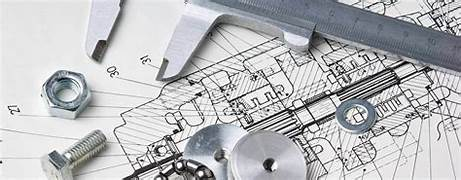The field of mechanical engineering is rapidly evolving with the integration of sustainable technologies, digital transformation, additive manufacturing, advances in aerospace engineering, and emerging technologies. These trends are shaping the future of mechanical engineering in 2024, driving innovation and sustainable practices across industries.
Sustainable Technologies in Mechanical Engineering
-
- Advancements in Renewable Energy
Renewable energy sources have become a focal point in mechanical engineering, with innovations like wind turbines, solar panels, and hydroelectric power systems leading the way towards a more sustainable future.
-
- Green Manufacturing Processes
Incorporating eco-friendly practices in manufacturing processes is crucial for reducing the environmental impact of industrial operations. Companies are focusing on reducing waste, energy consumption, and emissions to create more sustainable products.
-
- Eco-friendly Material Innovations
Developing materials that are environmentally friendly and have a low carbon footprint is a key area of focus in mechanical engineering. From biodegradable plastics to recycled metals, the industry is constantly seeking ways to reduce the environmental impact of material production.
Digital Transformation in Mechanical Engineering
-
- Integration of Internet of Things (IoT) in Machinery
The IoT is revolutionizing mechanical engineering by enabling smart, connected devices that can communicate and interact with each other. This connectivity enhances efficiency, maintenance, and data analysis in mechanical systems.
-
- AI and Machine Learning in Design and Development
Artificial intelligence and machine learning technologies are reshaping the design and development processes in mechanical engineering. These tools optimize performance, improve accuracy, and streamline decision-making throughout the product lifecycle.
-
- Automation and Robotics in Manufacturing Processes
Automation and robotics are transforming manufacturing processes by increasing productivity, precision, and safety. From automated assembly lines to robotic arms, these technologies are enhancing efficiency and reducing human error.
Additive Manufacturing in Mechanical Engineering
-
- 3D Printing Revolutionizing Prototyping
3D printing has revolutionized the prototyping process in mechanical engineering, allowing for rapid iteration, customization, and cost-effectiveness. This technology is reshaping product development and design cycles.
-
- Metal Additive Manufacturing for Complex Components
Metal additive manufacturing is enabling the production of complex components with intricate geometries and superior strength. This technology is expanding the possibilities for lightweight, high-performance parts in various industries.
-
- Sustainable Materials in Additive Manufacturing
The use of sustainable materials in additive manufacturing is a growing trend in mechanical engineering. From bioplastics to recycled metals, engineers are exploring eco-friendly options to reduce environmental impact.
Advances in Aerospace Engineering
-
- Electric Propulsion Systems for Aircrafts
Aerospace engineering is embracing electric propulsion systems to reduce emissions and enhance efficiency in aircraft operations. Electric propulsion is revolutionizing the aviation industry by providing cleaner and more sustainable solutions.
-
- Lightweight Materials for Aerospace Applications
The use of lightweight materials like carbon fiber composites is a key focus in aerospace engineering to reduce fuel consumption and increase performance. Lightweight structures are crucial for improving aircraft efficiency and reducing environmental impact.
-
- Enhanced Aircraft Design for Efficiency and Performance
Advancements in aircraft design, including aerodynamics, materials, and propulsion systems, are driving innovation in aerospace engineering. Engineers are constantly seeking ways to improve efficiency, safety, and performance in aircraft design.
Emerging Technologies in Mechanical Engineering
-
- Nanotechnology for Small-scale Mechanical Systems
Nanotechnology is playing a significant role in developing small-scale mechanical systems with enhanced performance and functionality. From nanomaterials to nanosensors, this technology is enabling innovative solutions in various mechanical applications.
-
- Biomechanics in Medical Devices and Prosthetics
Biomechanics is revolutionizing the design and development of medical devices and prosthetics by incorporating principles of human movement and anatomy. These advancements are improving patient outcomes and quality of life.
-
- Quantum Computing for Engineering Simulations
Quantum computing is revolutionizing engineering simulations by enabling complex calculations and modeling that were previously impossible. This technology is advancing design optimization, material analysis,# Innovations on Horizon: The Top Trends Shaping Mechanical Engineering in 2024
The field of mechanical engineering is rapidly with the integration of sustainable technologies, digital transformation, additive manufacturing, advances in engineering, and emerging technologies. These trends are shaping the future of mechanical engineering in 2024, driving innovation and sustainable practices across industries.
In conclusion, the top trends shaping mechanical engineering in 2024 encompass sustainable technologies, digital transformation, additive manufacturing, advances in aerospace engineering, and emerging technologies. As mechanical engineers continue to innovate and embrace these trends, the future of the industry looks promising in driving progress and sustainability.








